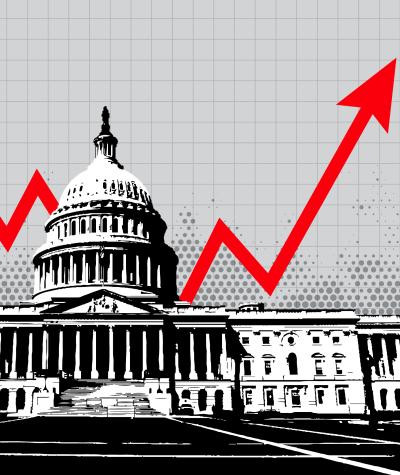The undeniable truth is that sunlight alone will not disinfect the congressional stock trading problem. The first 10 years of the 2012 Stop Trading on Congressional Knowledge (STOCK) Act proved that stock trading disclosure laws without stock trading restrictions make the problem worse, which means reform is inevitable.
Comparing the repercussions from compliance and noncompliance with the STOCK Act demonstrates the fatal flaw of relying on a disclosure-only law to combat insider trading.
When lawmakers comply with the disclosure law and promptly report their stock transactions, they often raise unresolved questions of noncompliance with the insider trading ban. For example, Rep. Mike Kelly (R-PA) timely reported that his wife bought stock in steel company Cleveland-Cliffs.
This led to questions about the timing of the purchase, and an investigation found that his spouse bought the stock the day after his office received a confidential notification that the Department of Commerce would take action to benefit the company.
After Commerce publicly announced the action a few days later, she ultimately had a nearly 400% return on her investment.
The insider trading question remains unresolved: Kelly did not cooperate with the investigation.
Conversely, when lawmakers don’t comply with the law, providing reports late or not at all, they raise the question of whether the failure to file is an innocent oversight or a calculated cover-up. For example, Rep. Kathy Castor reported a trade of Berkshire Hathaway stock several months late in 2021.
This might be a simple error because, for over a year, she has filed timely reports of her monthly trades. Compare that to Sen. Rand Paul. He reported over a year late that his spouse purchased stock in anti-viral drug maker Gilead in February 2020, while senators were receiving confidential briefings on the developing pandemic.
By reporting the trade a year late, Paul avoided falling under the Department of Justice’s 2020 investigation of senators reporting suspiciously timed trades. The penalty for a late report is $200, which appears to be rarely enforced.
The result of policing insider trading with disclosure, without more, is that lawmakers are under suspicion for their trades, investigators issue $200 “parking tickets” to late filers, and the public loses trust.
There are various paths to reform the broken, disclosure-only system we have now. One option is to require lawmakers to recuse themselves from voting or taking official action on any matter that could affect their holdings, but this goes against well-established precedent that a members’ vote is their highest duty and should only be restricted as a last resort.
Another option is to ban lawmakers from holding investments that are related to their committee assignments. However, there could be many potentially subjective calls made about which committee actions could affect an industry or company, devolving into a practically unenforceable rule.
Lawmakers could also be banned from owning any market investments and forced to divest all such assets before entering public service, but this option is arguably draconian.
All roads seem to end with the option that has bipartisan support: dramatically reduce the risk of insider trading by banning lawmakers from trading stocks — except those held in a blind trust.
Lawmakers would continue to be able to trade mutual funds and exchange traded funds. The problem is clear, and the most promising reform option has a consensus. Congress should act now.
Voters have a right to know that their elected officials are working in the public’s interest and not that of their own wallets. To avoid continued problems with diminished public trust in another 10 years, Congress should take the next step by holding hearings on the pending reform legislation.

